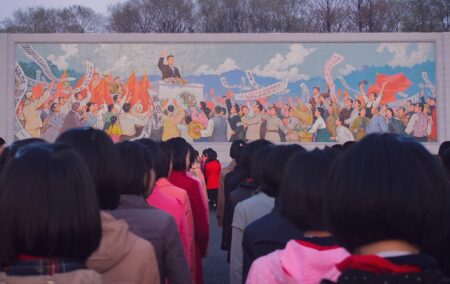North Korea’s population is engaged in a state-mandated campaign aimed at presenting the January congress of the ruling Workers’ Party of Korea with ‘fiery enthusiasm and brilliant achievements’.
Initiated in October, the 80-day long campaign – called a ‘battle’ in state-run media – seeks to ramp up economic output beyond its targets. Such campaigns are called from time to time, and demand increased labour from the population.
North Korea’s economy has been hit particularly hard over the past year from sanctions, the effects of the Covid-19 pandemic and typhoons and flooding. In August, the Workers’ Party admitted that the country’s economy had ‘not improved in the face of the sustaining severe internal and external situations’.
In August, too, it refused to accept aid to cope with the flooding.
North Korean media features numerous claims of rapidly escalated production, although none of this can be verified.
Reports from the country point to a crackdown on the brewing of liquor as a ‘waste of grain’.
Experts are, however, sceptical that initiatives of this nature will have any meaningful impact on the country’s economic malaise. A recent survey of defectors from the country suggests that it was common for North Korean workers not to earn an income, even when they reported for work.
In addition, the country devotes a substantial portion of its resources to its military, close to a quarter of its GDP according to some estimates. In October, North Korea showed off what appeared to be a new intercontinental ballistic missile and a nuclear-capable submarine launcher.
[Picture: Thomas Evans on Unsplash]

